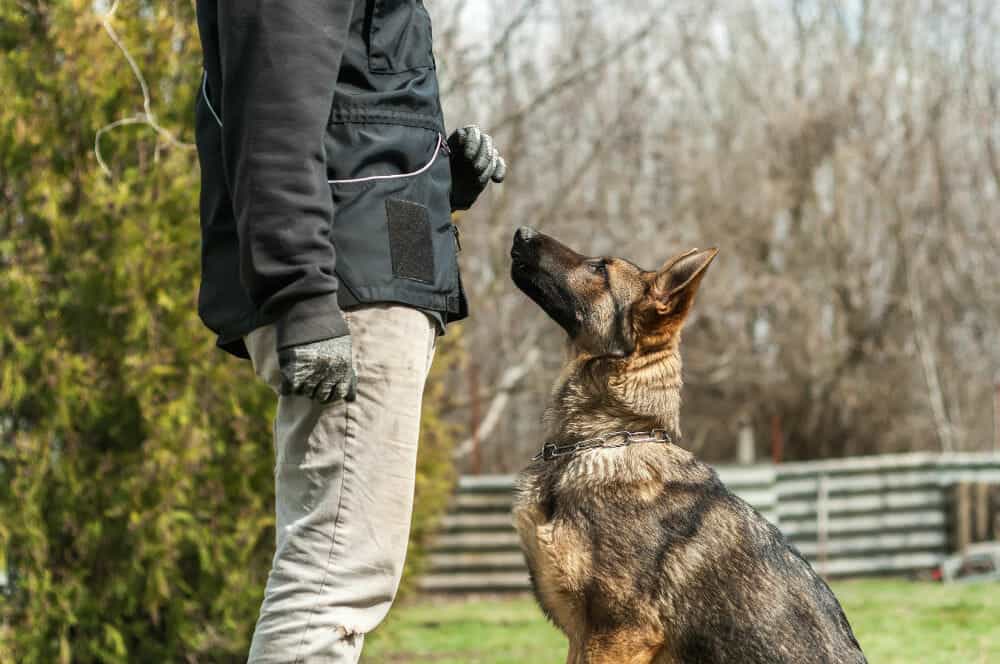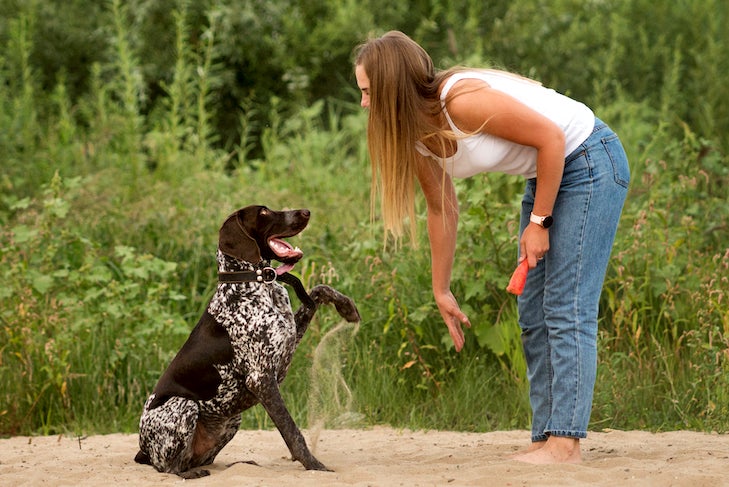Exploring Choices for Dog Training Charlotte: What You Required to Know
Exploring Choices for Dog Training Charlotte: What You Required to Know
Blog Article
Unlock Your Pet dog's Prospective: Proven Pet Training Strategies for Success
Efficient pet training is a nuanced procedure that pivots on comprehending canine habits and employing scientifically backed methods. By integrating positive reinforcement, developing clear commands, and focusing on socialization, pet owners can cultivate an efficient connection with their animals.
Comprehending Canine Habits
Comprehending pet behavior is important for effective training and cultivating a positive relationship in between pets and their owners. A comprehensive grasp of canine body language, articulations, and social interactions is crucial for identifying their feelings and demands. Dogs communicate largely through non-verbal cues; for instance, a wagging tail might show exhilaration, while pinned ears can indicate worry or entry.

Furthermore, environmental elements play a significant function fit a pet's behavior. Adjustments in regular, brand-new environments, or the existence of strange individuals can lead to stress and anxiety or stress and anxiety in pet dogs. Recognizing these triggers enables owners to mitigate adverse responses and establish ideal training approaches.
Inevitably, a deep understanding of canine habits lays the foundation for effective training methods, improving both actions and the general bond between the pet dog and its proprietor. dog training near me. This understanding is essential for cultivating a well-adjusted, satisfied canine companion
Positive Support Methods
Reliable training counts heavily on positive reinforcement strategies, which have been shown to produce considerable cause forming preferred habits in pets. This strategy entails awarding a pet for displaying particular habits, thus boosting the chance that these behaviors will certainly be repeated. Rewards can take numerous kinds, including treats, appreciation, playthings, or playtime, relying on what inspires the specific pet dog.

It is important to gradually phase out rewards as the canine learns the habits, transitioning to recurring support. This approach maintains the actions with time while protecting against dependence on consistent rewards. By focusing on positive support, trainers can cultivate a relying on partnership with their canines, advertising a cooperative and healthy and balanced training environment that enhances overall obedience and efficiency.
Establishing Consistent Commands
A fundamental aspect of successful canine training is the establishment of regular commands. Consistency in commands is important for reliable communication between the pet and the trainer. When commands are uniform, canines learn to link details words with wanted actions, which accelerates the training process and boosts understanding.
To establish consistent commands, it is important that all relative use the very same terms and gestures. If one person makes use of "rest" while another states "sit down," it can produce complication for the pet dog. Select clear, unique words for commands and make certain every person associated with the canine's training complies with these choices.
Additionally, repetition is key. Enhance commands through constant practice, making certain that the pet gets ample possibilities to react appropriately. When a pet efficiently complies with a command, immediate positive reinforcement ought to adhere to. This could be in the form of deals with, praise, or playtime, strengthening the link between the activity and the command.
Finally, be person. Establishing regular commands takes some time and initiative. With devotion and quality, you will certainly assist your pet dog click for more info establish a strong understanding of assumptions, inevitably resulting in a well-behaved buddy.
Socializing and Direct Exposure
Socializing a canine is vital for promoting a well-adjusted and confident companion. This process entails exposing your pet dog to a range of atmospheres, people, and other animals to establish their social abilities and adaptability. Early socialization, preferably in between the ages of 3 to fourteen weeks, is essential, as it lays the foundation for a canine's future actions.
Throughout socializing, purpose to supply favorable experiences in various settings, such as parks, hectic streets, and homes with other pet dogs. Present your pet to various stimulations, including sounds, views, and scents, making sure that each experience is fulfilling. This use this link direct exposure helps minimize anxiety and stress and anxiety, leading the way for a much more resilient pet.
Taking part in regulated team play sessions with other dogs can likewise enhance social abilities, teaching your animal ideal interactions and borders. Always check your canine's comfort degree during these experiences, slowly enhancing direct exposure as their confidence grows. Keep in mind, the objective is to create an all-around animal that prospers in diverse scenarios, promoting a harmonious relationship with both humans and other animals. Prioritizing socialization will significantly contribute to your pet dog's general happiness and behavior throughout their life.
Conquering Common Training Difficulties

One more regular problem is diversion. Dogs may struggle to concentrate in strange or busy setups. Gradually desensitize your pet dog to diversions by starting training in a peaceful atmosphere and slowly presenting more stimuli as they become skilled (Dog training). Positive reinforcement strategies, such as treats and praise, can preserve motivation and focus.
Furthermore, behavior issues like jumping or extreme barking can become aggravating. Address these by educating alternative habits, such as resting calmly when greeting visitors. Uniformity and persistence are important; reinforce wanted habits consistently and avoid scolding, which can bring about confusion.
Finally, acknowledge that each pet is one-of-a-kind, and training timelines might differ. Dressmaker your approach to your pet's private needs, and look for professional guidance if necessary. With perseverance and the appropriate strategies, conquering these obstacles can bring about a trained, happy canine companion.
Verdict
In verdict, unlocking a pet's prospective requires a thorough strategy that includes an understanding of canine behavior, the application of favorable support strategies, and the facility of constant commands. Early socializing and exposure to diverse settings even more boost a pet dog's adaptability and confidence. By dealing with usual training obstacles with customized strategies and patience, a cooperative and harmonious partnership in between pet and trainer can be fostered, inevitably leading to a well-behaved companion capable of thriving in various circumstances.
Effective pet dog training is a nuanced process that hinges on comprehending canine actions and utilizing medically backed strategies.Understanding dog habits is vital for efficient training and promoting a favorable connection in between pet my explanation dogs and their proprietors.Efficient training counts greatly on positive support strategies, which have been revealed to yield considerable results in forming preferred behaviors in dogs. When commands are uniform, pets learn to connect details words with desired behaviors, which accelerates the training procedure and boosts understanding.
In final thought, opening a pet dog's possible demands a detailed technique that integrates an understanding of canine actions, the application of positive support methods, and the establishment of consistent commands.
Report this page